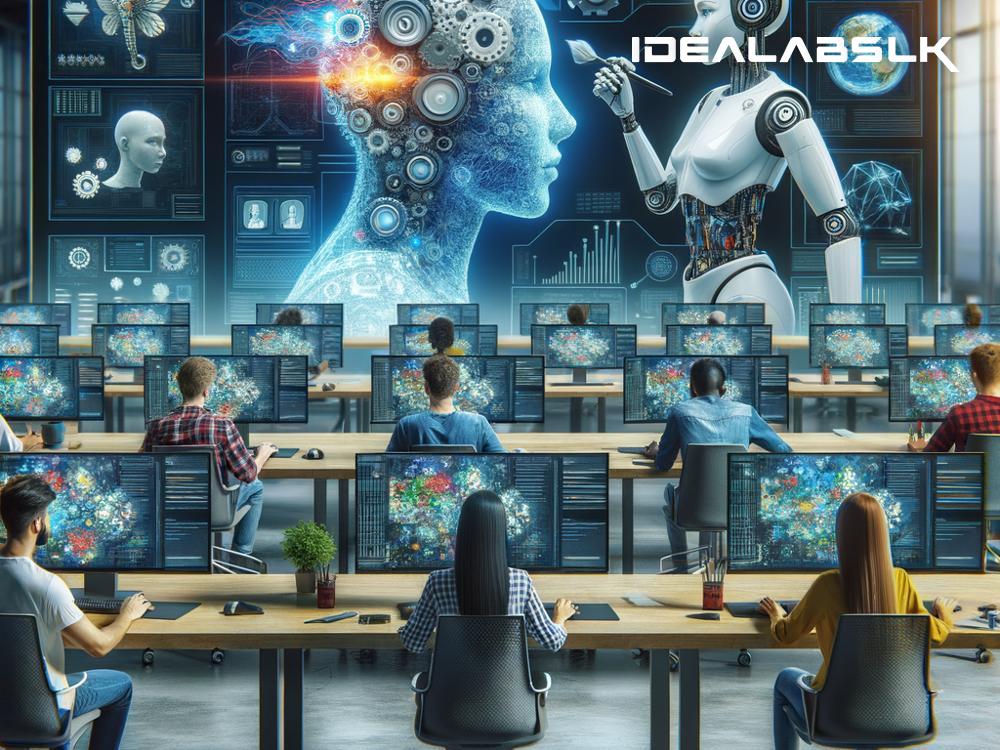How AI Will Drive Future Game Engines: Creating Smarter, More Efficient Games in 2025
As we edge closer to 2025, the gaming industry is gearing up for a revolution, thanks to Artificial Intelligence (AI). The future of game engines is being reshaped by AI, promising to deliver smarter, more efficient, and incredibly immersive gaming experiences. In this article, we'll explore how AI is set to redefine the way games are developed, played, and experienced in the near future.
The Dawn of AI in Gaming
AI has always been a part of the gaming world, from the basic enemy behavior in older games to the more complex decision-making processes in modern titles. However, as we move towards 2025, AI's role in gaming is shifting from just an in-game feature to a central component in game development engines. This transition signals a new era in game design, making development easier, faster, and more creative.
Creating Smarter Games
One of the most exciting prospects of AI-driven game engines is the ability to create smarter, more adaptive games. Imagine playing a game where the NPCs (Non-Player Characters) learn from your playing style, making each encounter unique and challenging. Or a world that evolves based on your actions, offering a truly dynamic gameplay experience. In 2025, these scenarios won't be mere fantasies. AI will enable games to offer personalized experiences, tailoring the difficulty, story progression, and even dialogues to match the player's preferences and behavior.
Streamlining Game Development
Developing a game is no small feat. It involves countless hours of coding, designing, and testing. However, AI is set to streamline this process significantly. By 2025, game engines powered by AI will automate many of the tedious and time-consuming tasks involved in game development. From generating complex environments and realistic textures to scripting NPC behavior, AI can handle these aspects with efficiency and precision. This doesn't just speed up the development process but also opens up new avenues for creativity, allowing developers to focus on innovating and enhancing the gameplay experience.
Enhancing Graphics with AI
Graphics are an integral part of video games, and as we approach 2025, the expectations for visual quality are higher than ever. AI is stepping up to meet these demands. Through techniques like machine learning and procedural generation, AI-driven game engines will create ultra-realistic graphics and animations. Moreover, AI can optimize these graphics in real-time, ensuring that games look stunning without compromising performance. This means that even the most graphically intensive games can run smoothly on a wider range of hardware, making high-quality gaming experiences more accessible to everyone.
Reducing Costs and Making Gaming More Inclusive
The cost of game development has skyrocketed over the years, but AI promises to bring these costs down. By automating various aspects of the development process, AI reduces the need for large teams and lengthy development times, significantly cutting down the expenses. This not only benefits the developers but also the consumers, as it could lead to a reduction in game prices. Furthermore, the efficiency of AI-driven game engines makes it easier for indie developers to create complex, compelling games, fostering greater diversity and creativity in the industry.
The Challenges Ahead
While the future of AI in game engines looks promising, there are challenges to overcome. Concerns about job displacement, the ethical use of AI, and the potential for diminishing creativity are valid and require thoughtful consideration. The gaming industry must navigate these issues carefully, ensuring that AI is used to enhance, not replace, the human element of game development.
Conclusion
As we look towards 2025, it's clear that AI is set to transform the gaming industry in profound ways. From creating smarter, more adaptive games to streamlining the development process and enhancing graphics, AI-driven game engines are gearing up to deliver experiences we've only dreamed of. While there are challenges to address, the potential benefits for developers and gamers alike are immense. The fusion of AI and game engines promises not just to advance the technical aspects of gaming, but also to enrich the artistry and storytelling that lie at the heart of great games. The future of gaming is bright, and AI is the guiding light leading the way.

